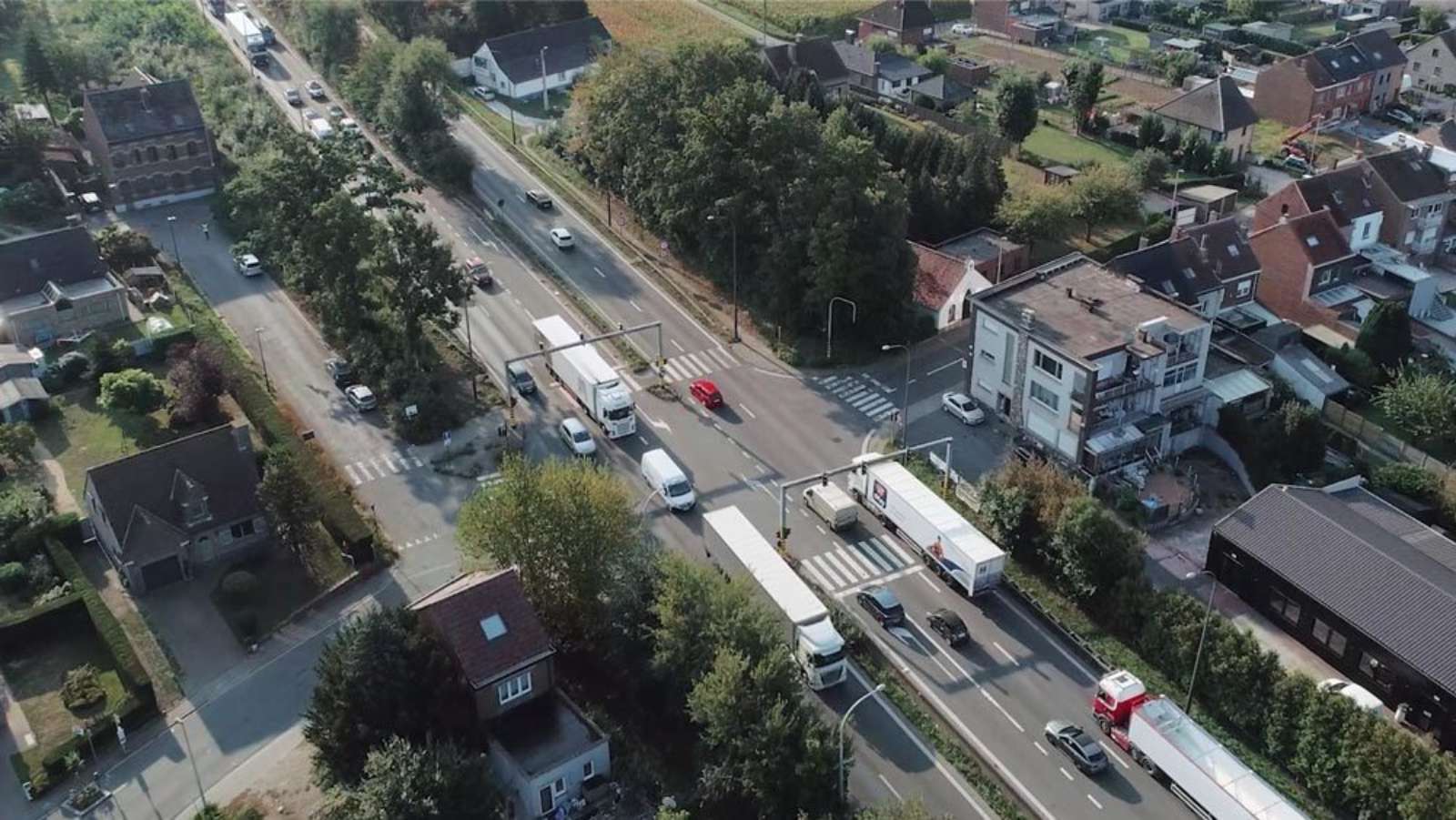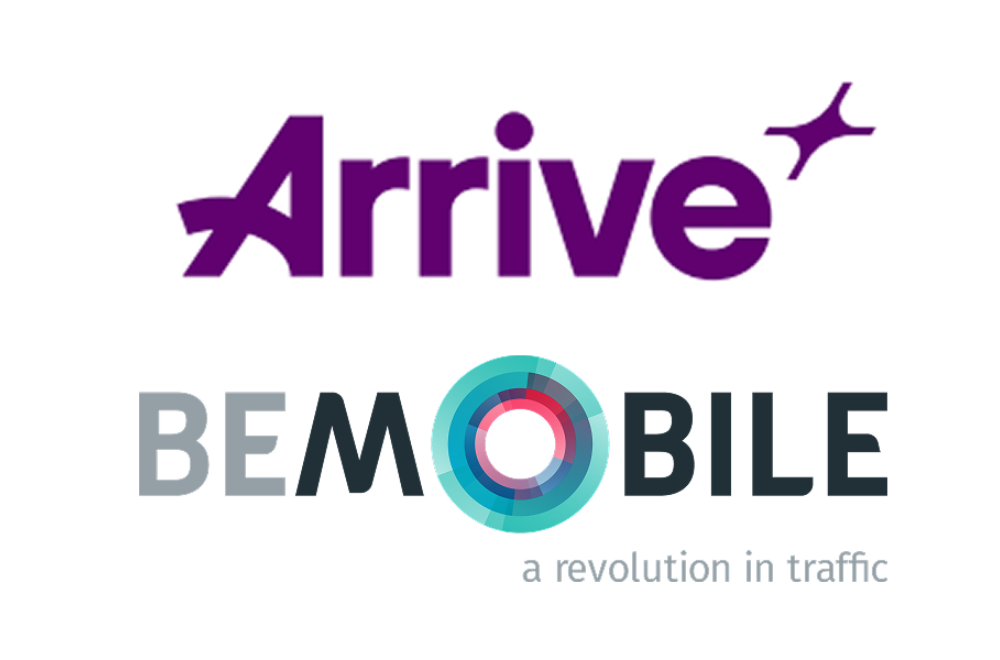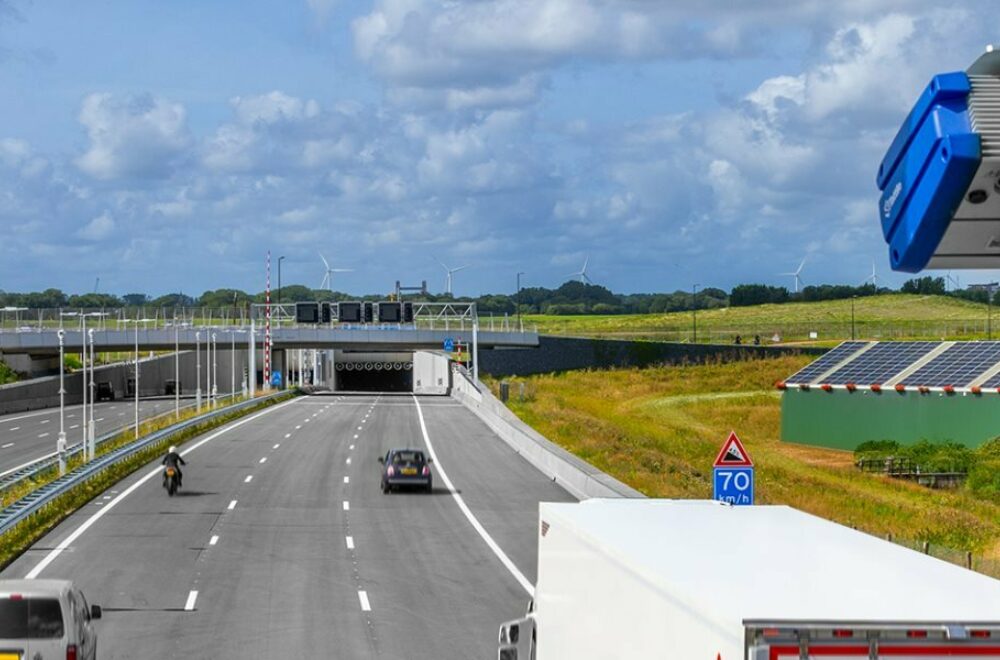
08 oktober 2020
Big data, digitization and technology can help to optimize freight transport and improve safety, flow and emissions. That is the conclusion of CITRUS (Cooperative Intelligent Transport Systems for Trucks), the first Flemish pilot project that tested how vehicles and traffic lights can communicate with each other in two directions. "CITRUS shows that innovative technology will play an important role in making our traffic and transport more sustainable and safer", says Flemish Minister Lydia Peeters. "Projects such as CITRUS are preparing Flanders for the mobility of the future, even though we still have several steps to take.”
Realtime traffic information via an app
How can we prevent tail end of traffic jam collisions? And how can we ensure a smoother flow of transport at traffic light intersections? In short, these are the questions that the CITRUS project (Cooperative Intelligent Transport Systems for Trucks) has been working on in the past few years. Smartphones are everywhere and emit a lot of signals. Why not use these signals to make our transport safer and more sustainable?
During the CITRUS project, 100 professional drivers received realtime traffic information for 4 months via a companion app in their vehicle: information about traffic jams on the planned route, road works but also advice on speed and route selection. The information that fed these warnings is a combination of anonymized user data (such as smartphone data) and roadside data generated by for example traffic lights, detection loops, road work databases and signaling vehicles.
"CITRUS shows that innovative technology will play an important role in making our traffic and transport more sustainable and safer. Projects such as CITRUS are preparing Flanders for the mobility of the future."
- Lydia Peeters, Flemish Minister of Mobility and Public Works
Smooth and safe through traffic, and good for the environment
What is the main conclusion of CITRUS? The app does what it promises to do: guide professional drivers (trucks, buses and intervention vehicles such as fire trucks) safely and smoothly through traffic. This by warning for tail ends of traffic jams but also by ensuring a smooth flow at intersections with traffic lights, which is positive for the environment.
Steven Logghe, Business Unit Director Traffic at Be-Mobile indicates: "We are delighted that this project shows that a companion app offers added value on different levels such as safety and ecology. We are looking forward to working with the partners and increasing the scope and impact by linking even more data. Investments in smart and connected infrastructure are therefore crucial."
Dr. Sven Maerivoet, Senior Researcher at Transport & Mobility Leuven adds: "CITRUS shows that technology can increase alertness when approaching a tail end, even though the average speed of the truck driver does not decrease. The intelligent traffic lights show a substantial improvement in traffic flow, especially when the cycle is adapted to the oncoming traffic."
On to an integrated app
"The test with the Companion App that was delivered showed that the drivers are indeed being helped, but that an application with one functionality is actually not sufficiently user-friendly", says Regine Vaneghem, Head of Department Transport at Colruyt Group. "In addition, we found that the availability of accurate data, which does not stop at municipal or regional borders, is crucial for the applicability of such applications. So there is a need for an integrated application that focuses on route guidance for heavy freight transport, but then supplemented with traffic reports, reports of road works, traffic lights and, on top of that, smart communication with other road infrastructure.”
Intelligent traffic lights
The intelligent control of traffic lights based on realtime traffic information (the green wave principle) was extensively tested during the CITRUS project and showed that communication with the traffic lights does support the driver. The traffic lights on the N203a in Halle (connection between R0 and E429) have been equipped with technology that allows them to communicate with trucks. In this way, truck drivers were given information about the status of the traffic lights and the time until the next color. In addition, the drivers were also given speed advice so that they did not have to stop unnecessarily, which reduces harmful emissions.
Regine Vaneghem: “We only tested this at three traffic lights. We hope to do this on a larger scale in the future. Ideally, we will also add communication with other traffic infrastructure. This can then be implemented in our standard processes which could lead to interesting progress in the long term.”
Great collaboration between public and private
For this project, the Flemish government and Belgian private companies joined forces. Be-Mobile (specialist in smart mobility) and the Flemish Government (the Department of Mobility and Public Works and the Agency for Roads and Traffic) worked together to collect (traffic) data and then use it efficiently. The study bureau Transport & Mobility Leuven (TML) provided support for the monitoring and evaluation of this pilot project. Colruyt Group, the Port of Zeebrugge and Antwerp Port Authority tested the implementations. The CITRUS project was realized with European support from the Connecting Europe Facility.
Minister Lydia Peeters: "Smart infrastructure and vehicles, and qualitative data"
Lydia Peeters, Flemish Minister of Mobility and Public Works concludes: "CITRUS shows that technology offers many possibilities. In addition, I am pleased that this project shows that public-private partnerships can offer great advantages. CITRUS is an excellent example of how technology will play an important role in making our traffic and transport more sustainable and safer. The Flemish government is committed to innovative solutions to achieve this. There is currently a citizens' survey for the Flemish mobility vision 2040. This long-term strategic vision should help Flanders to make the right policy choices in the coming years. This way, we want to prepare Flanders for the mobility of the future in which technology, digitization and automation will play an important role. We want to make our infrastructure and our vehicles and vessels smarter and more innovative, and we want to focus on qualitative mobility data. My administration will now examine, together with the project partners, the options for a broader rollout of the services developed for the CITRUS project.”




